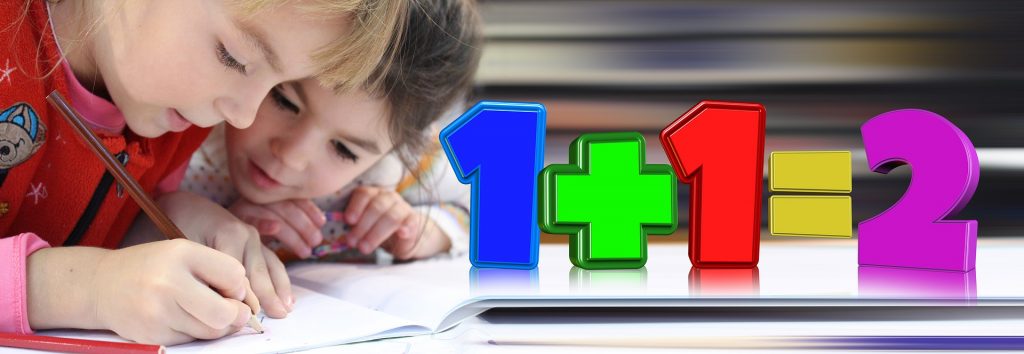The way of educating children has gone through many changes in the last few years. To educate, discipline is necessary. Children must know what they can or cannot do, be responsible for their actions and the consequences they generate. The existence of norms through positive discipline, for the care of children, will give them security and confidence to face life.
Traditionally, both parents, caregivers, and educators have used punitive discipline, based on punishment, which is very effective in the short term but causes very negative and inadvisable effects: shame, resentment, low self-esteem, revenge, and submission.
Discipline is necessary to educate children. Little ones need to know what they can and cannot do. Learn that they are responsible for their actions and that every action, therefore, has a consequence.
Discipline helps them learn the proper ways to behave and act. In the early years, the existence of discipline and rules will give them security, since they will have a guide to know how to act.
But you must not understand discipline as an imposition of norms, rules, and ways of acting. Discipline must be a means for the healthy and happy development of children, a way to teach them to be autonomous and responsible, that does not harm their self-esteem and does not cause negative reactions.
Positive discipline is based on respect and aims to promote the maturation of boys and girls so that they become responsible, autonomous, and happy adults.

Benefits of Positive Discipline
Traditionally in the education of children, punitive discipline has been used, based on punishment, which causes negative effects (resentment, revenge, rebellion, and reduction of self-esteem). In contrast to this, positive discipline is offered, based on respect that proposes to involve the child, promoting self-control and self-esteem, making them responsible and respectful people.
The goal of positive discipline is for children to understand and share the meaning of the rules. That way, they are responsible to understand that their actions have consequences and that they act freely based on this knowledge.
If you use another type of punitive discipline, the child will act in the appropriate way guided by fear instead of coming to understand why he should act that way.
For the children to behave better they must first feel worse?
You just have to put yourselves in the shoes of your children and remember the last time you were not treated kindly or felt humiliated (even if you have to go back to being children again). Do you feel good and collaborative? Or do you feel bad, sad, angry, even shameful? Well, the same happens to children.
Positive education understands discipline as a means for children to develop a healthy and happy mindset. It is treated like a way to make the children autonomous and responsible through love, kindness, respect, and collaboration.
The list could be very long, but here are some important points that can help parents and educators:
Serve as a guide
It is essential that the adult once understands the children’s cognitive and emotional process, helps them think, reason, and decide about their behaviour rationally and not just emotionally.
Act as an example
Often punitive discipline has been contradictory for children, for example, the actions that adults carry out, such as yelling. It is essential to keep in mind that children learn more from what they see than from what you tell them.
Involve the child
Awareness implies feeling involved in the changes. In this sense, behavioural objectives can be established, changes in consensus with the child, and then a joint plan can be drawn up.
Combine firmness with kindness and affection
The trick of positive discipline consists of knowing how to maintain firmness without harming the child, that is, from affection and kindness.
Highlight the value of the dialogue
Positive discipline is based on dialogue as it is the means to help the child become aware of their mistakes and their ability to improve.
Develop autonomy and responsibility
It is about educating children who are capable of analysing situations and making responsible decisions autonomously.
Focus on solutions
It is important to go beyond the problem or the bad action to focus on the solution by making the child participate in it. That is to say, it is not about imposing meaningless punishments unrelated to misbehaviour, but about solving the problem.
Take care of the self-esteem of the child
For this, it is essential to criticise the behaviour, but never the child, and when it is necessary to scold or punish, do so with respect and without transmitting fear.
You can Introduce your children to stem education. STEM education emphasises creativity, problem-solving skills, and critical thinking. That will help to encourage the self-esteem of your child. There are many education platforms that offer value-added online stem classes for kids in stem concepts .
Some more important points to keep in mind
- Be kind and firm
- Gives them the responsibilities: Develops their autonomy, makes them responsible for tasks according to their age.
- Help them to reason and allow them to choose. Offer limited options so that there is a choice
- Set limits clearly so that you can respect them
- Be an example to make it easy to meet the limits
- Explain why you should do things. Involve the child in the behavioural objectives
- Actively listen and put yourself in their shoes
- Let them make mistakes: Dialogue and let them know the consequences of their actions, allow them to make mistakes, and let them use it as an opportunity to improve, as an opportunity to learn
- Look for common solutions, involve them, and do not blame
- And the most important: love them, love them very much and let them know.
Conclusion
It is about putting yourself in the place of the children, identifying their beliefs, and understanding the feelings that are behind their behaviour. The adult must understand the reasons why the children have done that. This does not mean approving bad behaviour, but it does mean understanding the intention behind it.
This understanding will serve as a starting point to change beliefs and feelings and with the help of these you can modify the children’s behaviour. When trying to change behaviour without analysing the child’s thoughts and emotions, it is likely that they will continue that over time.
Author Bio
Name – Archana Agarwal
Bio –Archana Agarwal is a Postgraduate in International Management from the University of Strathclyde, Scotland, an Entrepreneur, a proud mother to a 7-year-old, and Founder- CEO of Aark Learnings, a leading online educational platform that provides skill-based holistic education and experiential learning to the new generation kids which help in their growth and overall development






